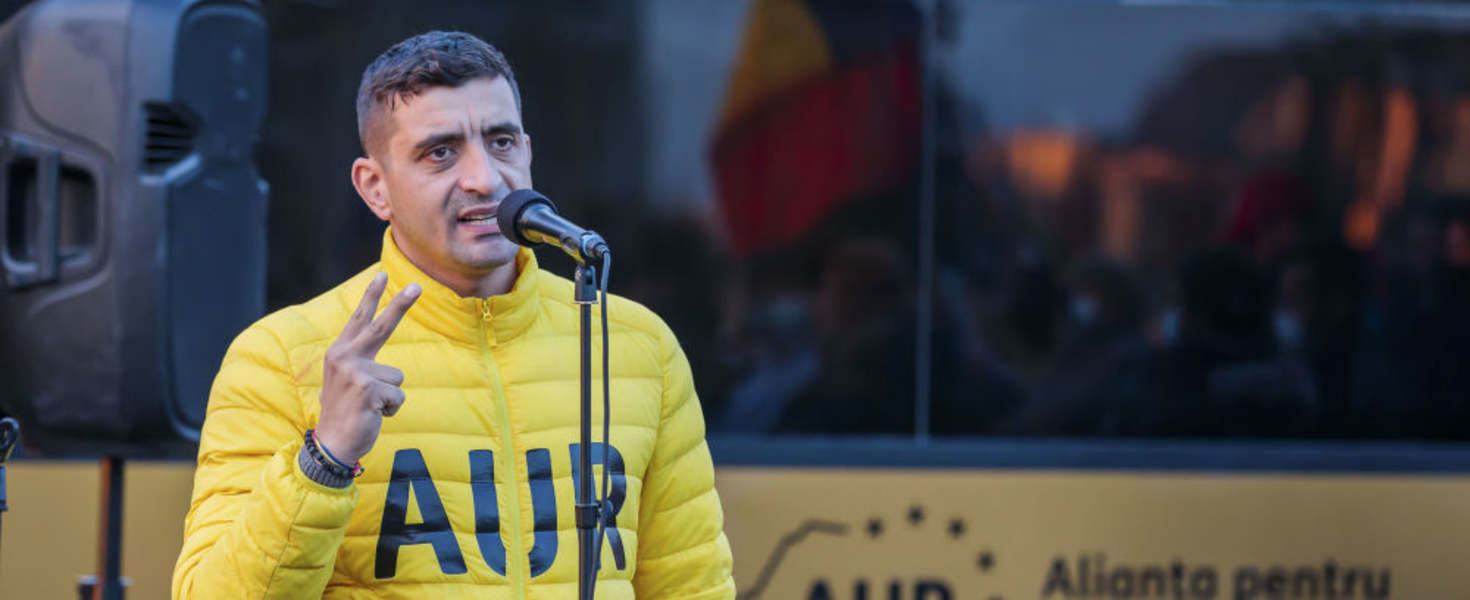Just like the transition process of so many other countries that emerged from behind the Iron Curtain to re-establish their place on the right side of history, Romania’s progress has been somewhat uneven over the past thirty years, but its achievements in leaving behind the dark days of Nicolae Ceaușescu and transforming itself into a functioning democracy and a trusted member of the transatlantic community must be recognized. Bucharest has played its part in stabilizing Central and Eastern Europe and strengthening the spirit of cooperation among nations that saw far too many bloody conflicts in the course of history. Against this backdrop, it is alarming to see dark clouds gathering over Romania in the form of a very troubling new political force that should have no place in the new Europe we have been building for over three decades.
Following a mercurial rise, the Alliance for the Unity of Romanians (AUR) now possesses more than 10 percent of the seats in the country’s legislation. Some will surely pin this recent development on the hardships caused by the pandemic. Muddy waters resulting from such crises indeed facilitate the rise of obscure and quite often dangerous political movements.
This is probably one fairly accurate way to describe the deeply concerning developments in the political scene of Romania, whose successful political and economic transition continues to be an important component in realizing the ambition of what President H. W. Bush called a Europe whole and free. Romania’s achievements are now in grave danger as a result of the speedy ascent of that truly alarming political grouping.
AUR is denying the reality of the Covid-19 virus, agitating against vaccination, and organizing street demonstrations to protest the pandemic-induced restrictions. Nevertheless, these, sadly, need to be ranked only as minor offenses compared to several other petrifying items on its agenda. Standing on a heavily nationalistic, anti-Semitic, anti-LGBTQ and anti-globalization platform and regularly scapegoating minorities such as the Romani people or ethnic Hungarians, Germans including the ethnic German president Klaus Iohannis, AUR proposes banning ethnic parties, openly advocates the union of Romania and Moldova, and denounces privatization as well as foreign investments that, in its narrative, have sold out the country to Western interests. Skillfully communicating its frequently hateful and discriminating messages in social media, the party has clearly benefited from a widespread public disillusionment with the political mainstream. In addition to several supporters of the fascist Legionary Movement launched in the 1920s, one will find in its ranks politicians accused of racism and misogyny, while others have ties to figures such as Holocaust-denying journalist Victor Roncea.
These are depressing times. We have on our hands a pandemic we can barely manage, a global crisis whose end is not in sight, and an international system whose resilience is being severely tested. We witness a global trend of regressing democratic values and a growing international coalition is out to undermine the liberal international system. This peril is further exacerbated by the tide of illiberalism that has started to take on alarming proportions in Central and Eastern Europe. On top of all these concerns the formation and unexpected ballot box success of the Alliance for the Unity of Romanians came as a most unpleasant surprise. The shock was all the greater as the party registered virtually no success before coming in fourth at the parliamentary elections last December.
To raise the stakes even higher, Romania is situated in the Black Sea region, an area of ever growing strategic importance. The last thing NATO or the European Union need right now is a member in which a deeply controversial party with possible Russian links is on the rise. However, with AUR, that is precisely the case.
We need to see AUR’s successful landing on Romania’s political stage for what it is: an obvious threat to the future of that country as a successful Western ally and an outright challenge to the ideals of both the Atlantic community and the EU. What’s more, this political game is taking place in the context of intensifying strategic competition where the loss of Romania’s stability would deliver a major blow to the long-term interests of the West. If no action is taken, the consequences may indeed be grave. Responding to Romania’s undeniable problems through the recipe offered by AUR is simply a bad idea. A profoundly, utterly, menacingly bad idea. Let’s hope we are not dealing with a lost cause here. Democratic leaders should not hesitate to weigh in and aid the great number of Romanians still dedicated to our shared values. It is still a few minutes before midnight.
